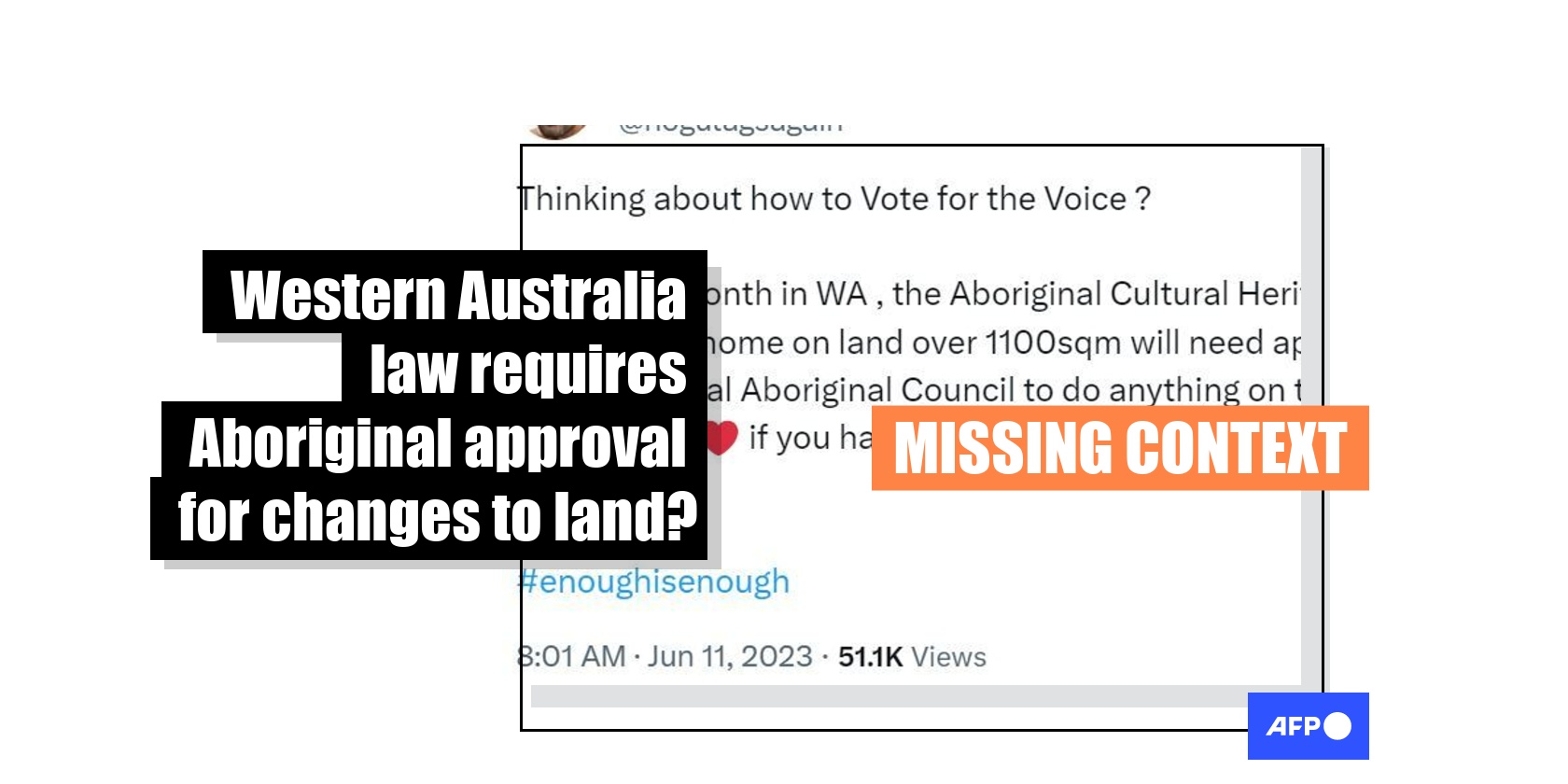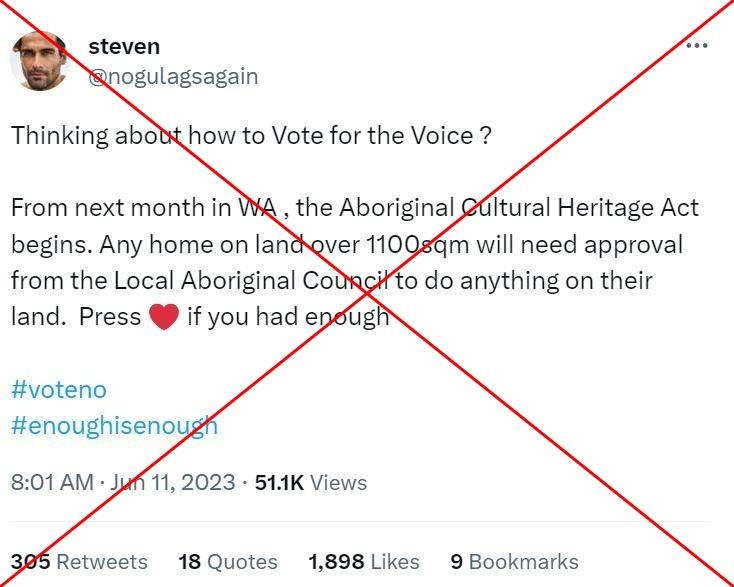
Posts mislead on breadth of updated Western Australia law protecting Aboriginal heritage
- This article is more than two years old.
- Published on July 17, 2023 at 04:45
- Updated on August 8, 2023 at 09:21
- 3 min read
- By Kate TAN, AFP Australia
"Thinking about how to Vote for the Voice?" reads part of a tweet posted here on June 11, 2023.
The tweet, which was shared more than 320 times, is referring to a referendum to be held later in 2023 asking Australians whether the indigenous population should be recognised in the constitution and get a dedicated "voice" in national policymaking.
The tweet continues: "From next month in WA , the Aboriginal Cultural Heritage Act begins. Any home on land over 1100sqm will need approval from the Local Aboriginal Council to do anything on their land."
Western Australia's state government said the "modernised and improved" Aboriginal Cultural Heritage Act, which protects and manages Aboriginal cultural heritage in the state, would prevent "another incident like what occurred in Juukan Gorge" (archived links here and here).
Anglo-Australian mining giant Rio Tinto sparked outrage in May 2020 when it blew up a 46,000-year-old heritage site at Juukan Gorge to expand an iron ore mine. The rock shelters at the gorge were destroyed against the wishes of the Indigenous Puutu Kunti Kurrama and Pinikura (PKKP) people of Western Australia.
But Western Australia's premier, Roger Cook, said the new law had proven to be too complex and divisive since it came into force on July 1.
Instead, the state government said it was introducing legislation to revert to the previous law that had been in place for 50 years.

Similar claims were also shared on Facebook here and here.
Comments on the posts suggest some users believed the law would curtail all kinds of activity on private land in Western Australia.
"Completely ridiculous, how did that pass?" asked one user.
Another said: "It's frightening for our farmers. Suddenly overnight they can't farm their own properties without permission. These people feed us. What do the indigenous tribes of WA do for us?"
But the claims are missing context.
Exemptions
A spokeswoman for Western Australia's Department of Planning, Lands and Heritage told AFP on July 5 it was incorrect to say all activities on land over 1,100 square metres required approval as there were exemptions (archived link).
Activities exempted from requiring approval were listed on the Western Australia government's website here (archived link).
It said, for example, that landowners and farmers would not need approval for installing a swimming pool, clearing a tree or building a boundary wall or fence on any lot with a home.
The state government also said no approval would be required if there was no impact on Aboriginal cultural heritage, or for "jobs like farmers planting a crop, running livestock, or replacing existing infrastructure, if the work is the same as what has been done before (like-for-like activities)" (archived link).
Activities such as new mining sites, deep excavations, land clearing, subdivisions or major construction projects involving "moderate to high-level ground disturbance" and posed risks to Aboriginal cultural heritage would require negotiations with relevant Aboriginal parties to come up with a management plan, the spokeswoman added on July 5.
Joe Dortch, an Aboriginal heritage assessment expert, also told AFP concerns about the law had been exaggerated in the claims shared online, but noted that "concerns are understandable" (archived link).
He acknowledged that landowners would face challenges understanding whether their property contained Aboriginal cultural heritage, as a lot of land needed to be surveyed.
But he said the government could already dictate what property owners did on their land under other existing laws.
"This concern about private property could also apply to laws allowing town planning to dictate what landowners can build, access for mineral exploration on pastoral leases, compulsory acquisition to allow major developments, etc. These laws exist already and don't seem likely to change," he said on July 6.
August 8, 2023 This story was updated to reflect that Western Australia's state government decided on August 8, 2023 to scrap the updated Aboriginal cultural heritage laws.
Copyright © AFP 2017-2026. Any commercial use of this content requires a subscription. Click here to find out more.
Is there content that you would like AFP to fact-check? Get in touch.
Contact us
